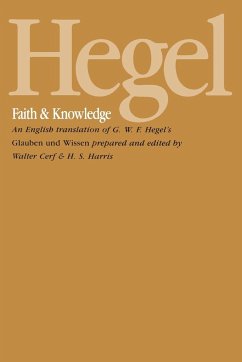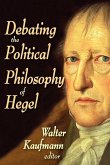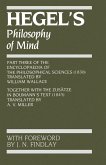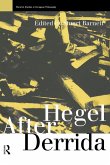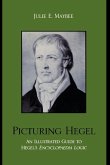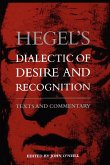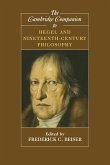As the title indicates, Faith and Knowledge deals with the relation between religious faith and cognitive beliefs, between the truth of religion and the truths of philosophy and science. Hegel is guided by his understanding of the historical situation: the individual alienated from God, nature, and community; and he is influenced by the new philosophy of Schelling, the Spinozistic Philosophy of Identity with its superb vision of the inner unity of God, nature, and rational man. Through a brilliant discussion of the philosophies of Kant, Fichte, and other luminaries of the period, Hegel shows that the time has finally come to give philosophy the authentic shape it has always been trying to reach, a shape in which philosophy's old conflicts with religion on the one hand and with the sciences on the other are suspended once for all. This is the first English translation of this important essay. Professor H. S. Harris offers a historical and analytic commentary to the text and Professor Cerf offers an introduction to the general reader which focuses on the concept of intellectual intuition and on the difference between authentic and inauthentic philosophy.
Hinweis: Dieser Artikel kann nur an eine deutsche Lieferadresse ausgeliefert werden.
Hinweis: Dieser Artikel kann nur an eine deutsche Lieferadresse ausgeliefert werden.

